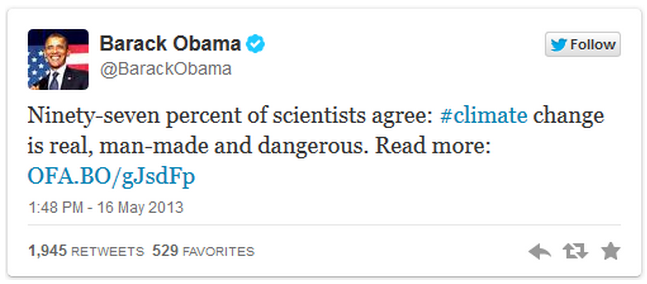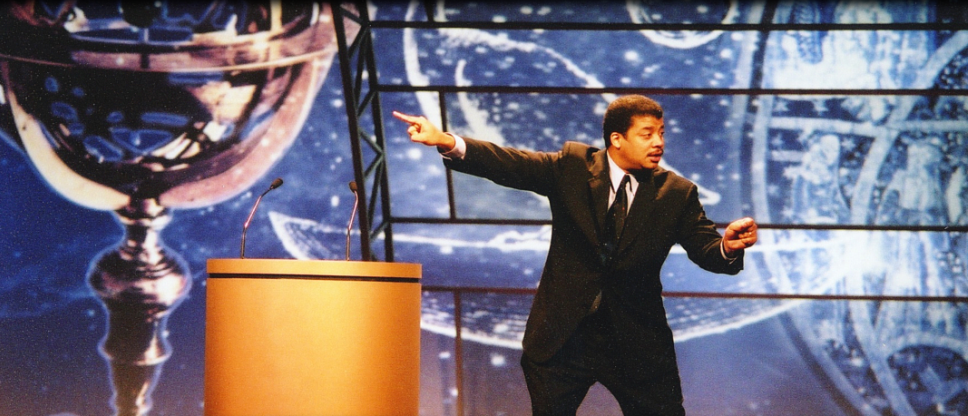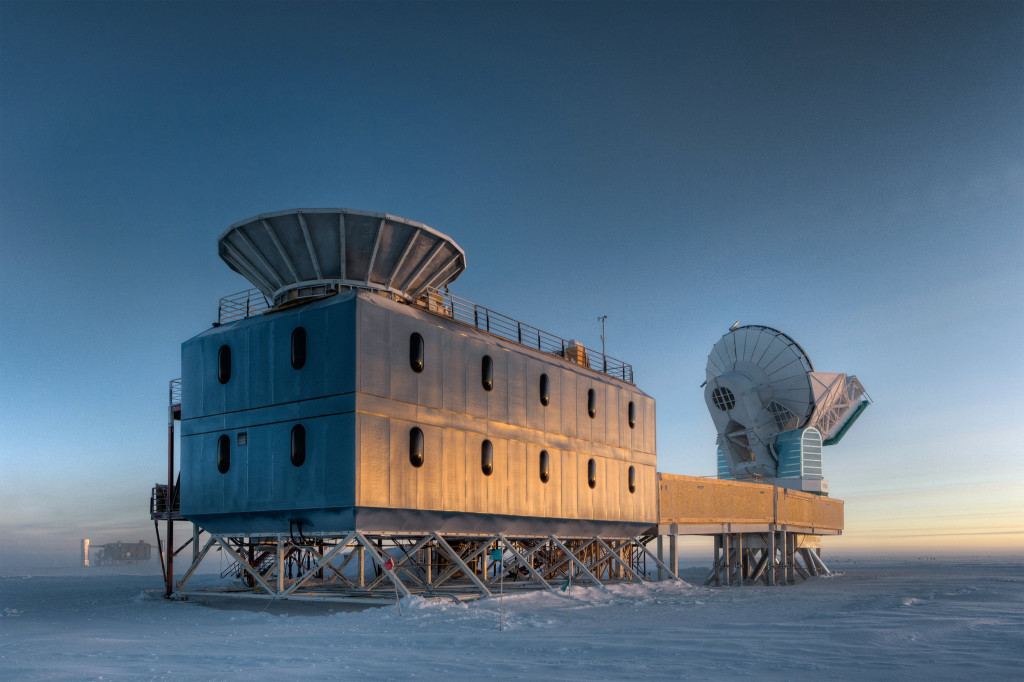Pious fraud is the idea that sometimes it’s a good idea to lie to serve a higher good. In religion, it may mean lying about the origins of a sacred text or witnessing a miracle. In science, it may mean lying about a useless medical treatment to try and strengthen the placebo effect. In Disney movies, it means giving an ordinary feather to Dumbo and telling him that it will magically help him to fly. The ethics of pious fraud are therefore hotly contested.
The most recent entrant in the long and checkered history of pious fraud is the exaggerated claim that 97% of climate scientists all agree on climate change. The claim started out as a paper (not peer reviewed, btw) and then went on to get lots of airtime. Even President Obama tweeted it:

There are lots of problems with the original paper and with the way that the paper has been used by others. Before we dig in, however, it’s important to carefully define the terms. The issue that is really at stake is not just a science issue, but a policy issue as well. It has 5 core components. They are:
- Climate change is really happening, and will continue to happen. (Implied: human forecasts are accurate.)
- The principle cause of climate change is human behavior (e.g. carbon emissions).
- The effects of climate change will, on balance, do much more harm than good.
- Climate change is largely reversible (e.g. we can do something about it).
- The costs of reversing climate change (e.g. with slower economic development for impoverished nations) are outweighed by the benefits.
As it turns out, however, the 97% paper successfully establishes near-universal scientific consensus on exactly none of these issues. Well, maybe on point #1, if you want to be generous. There are several articles out there castigating the authors of the paper for dishonesty and other shenanigans, but by far the strongest evidence of just how fraudulent the paper is comes from Popular Technology.
First, let’s explain how the 97% paper worked. Bjørn Lomborg (as reported in WattsUpWithThat) writes that:
The paper looks at 12,000 papers written in the last 25 years (see here, the paper doesn’t actually specify the numbers, http://notalotofpeopleknowthat.wordpress.com/2013/07/12/watch-the-pea/). It ditches about 8,000 papers because they don’t take a position.
They put people who agree into three different bins — 1.6% that explicitly endorse global warming with numbers, 23% that explicitly endorse global warming without numbers and then 74% that “implicitly endorse” because they’re looking at other issues with global warming that must mean they agree with human-caused global warming.
Voila, you got about 97% (actually here 98%, but because the authors haven’t released the numbers themselves, we have to rely on other quantitative assessments).
In other words, the 97% paper is based on interpreting the papers of various other climate scientists. So what Popular Technology did is actually quite simple, they asked the original authors if they agreed with how the 97% paper had characterized their articles. As it turns out: they did not. The 97% paper effectively drafted many of the most vocal and outspoken critics into the consensus regardless of their actual feelings. That would be bad enough. But, as the scientists described, the problems only get worse from there.
Let’s start with issue #2. Ostensibly, this should be the most reliable claim of the paper because it’s the whole point of the paper. Other folks, like President Obama, may have subsequently added on points 3-5 (which the paper itself didn’t claim), but surely the paper at least had some accuracy about the main issue it claimed to study? Not really. The problem is that the consensus being defended is what’s called the IPCC consensus (after the UN’s Intergovernmental Panel on Climate Change), but the IPCC defined anthropic global warming as global warming that is caused 90%-100% by humans. That’s a pretty high bar. The 97% paper, on the other hand, lowered that bar to just 50% and it did so without explaining what they were doing or why. Dr. Scaffeta, who has a PhD in physics and whose paper was used by the 97% paper as evidence of the consensus, explains:
Cook et al. (2013) [the 97% paper] is based on a strawman argument because it does not correctly define the IPCC AGW theory, which is NOT that human emissions have contributed 50%+ of the global warming since 1900 but that almost 90-100% of the observed global warming was induced by human emission.
What my papers say is that the IPCC view is erroneous because about 40-70% of the global warming observed from 1900 to 2000 was induced by the sun. [emphasis added]
Please note that it is very important to clarify that the AGW advocated by the IPCC has always claimed that 90-100% of the warming observed since 1900 is due to anthropogenic emissions. While critics like me have always claimed that the data would approximately indicate a 50-50 natural-anthropogenic contribution at most. [emphasis added]
What it is observed right now is utter dishonesty by the IPCC advocates. Instead of apologizing and honestly acknowledging that the AGW theory as advocated by the IPCC is wrong because based on climate models that poorly reconstruct the solar signature and do not reproduce the natural oscillations of the climate (AMO, PDO, NAO etc.) and honestly acknowledging that the truth, as it is emerging, is closer to what claimed by IPCC critics like me since 2005, these people are trying to get the credit.
They are gradually engaging into a metamorphosis process to save face.[emphasis added]
This is why I say that none of the 5 points above are actually substantiated by the 97% paper. Not only do Scaffeta (and many more) reject the characterization of their papers, but they in fact have dissenting views about the causes of global warming. This has profound implications. If (to use Scafetta’s high estimate), 70% of the global warming from 1990 – 2000 is caused by the sun, then this means that the models used by the IPCC consensus are wrong and we can’t trust their forecasts (so much for points 1 and 3). It also means that we have significant reason to doubt whether or not there’s much humans can do about climate change (points 4 and 5).
This is far from the only explosive comment to come from these scientists, however. Dr. Nir J. Shaviv (PhD in astrophysics) was also cited as being a part of the 97% consensus, and also completely rejected that categorization. He wrote:
Nope… it [that the paper was part of the 97% consensus] is not an accurate representation. The paper shows that if cosmic rays are included in empirical climate sensitivity analyses, then one finds that different time scales consistently give a low climate sensitiviity. i.e., it supports the idea that cosmic rays affect the climate and that climate sensitivity is low. This means that part of the 20th century should be attributed to the increased solar activity and that 21st century warming under a business as usual scenario should be low (about 1°C).
I couldn’t write these things more explicitly in the paper because of the refereeing, however, you don’t have to be a genius to reach these conclusions from the paper. [emphasis added]
So, not only does he also find that cosmic rays must factor into some of the warming (and therefore also criticize the forecasts), he also points out that he was unable to express his true opinion because of the peer review process, which was basically censoring (albeit not very well) his true belief. Just as a quick summary of the rest of the findings, here are some additional comments from the scientists who spoke with Popular Technology about how they felt the 97% paper characterized their own work:
- “It would be incorrect to claim that our paper was an endorsement of CO2-induced global warming.” (Dr. Craig D. Idso, Geography)
- “I think your data are a load of crap. Why is that a lie? I really think so.” and “I think your sampling strategy is a load of nonsense. How is that a misrepresentation? Did I falsely describe your sample?” (Dr. S. J. Tol, Economics, in a series of tweets to one of the authors of the 97% paper.) [emphasis original to the Popular Technology article]
- “The paper is strongly against AGW, and documents its absence in the sea level observational facts. Also, it invalidates the mode of sea level handling by the IPCC.” (Dr. Nils-Axel Morner, Quaternary Geography, describing how his own paper is actually against the consensus.)
- “I am sure that this rating of no position on AGW by CO2 is nowhere accurate nor correct…. I hope my scientific views and conclusions are clear to anyone that will spend time reading our papers. Cook et al. (2013) is not the study to read if you want to find out about what we say and conclude in our own scientific works.” (Dr. Willie Soon, Rocket Science, describing why the categorization of his paper as having “no position” on anthropic global warming was false. He added: “No extra comment on Cook et al. (2013) is necessary as it is not a paper aiming to help anyone understand the science.” [emphasis added])
- “If Cook et al’s paper classifies my paper, ‘A Multidisciplinary, Science-Based Approach to the Economics of Climate Change’ as “explicitly endorses AGW but does not quantify or minimize,” nothing could be further from either my intent or the contents of my paper… I would classify my paper in Cook et al’s category (7): Explicit rejection with quantification.” (Dr. Alan Carlin, Economics) [emphasis original to Popular Technology piece]
The Popular Technology article concluded: “The Cook et al. (2013) study is obviously littered with falsely classified papers making its conclusions baseless and its promotion by those in the media misleading.” and added two followup analyses: Cook’s 97% Consensus Study Game Plan Revealed and The Statistical Destruction of the 97% Consensus.
Where does that leave us? The most charitable possible interpretation is that the 97% paper deliberately or negligently inflated consensus on this issue. The reason for doing this is obvious: it’s a policy paper rather than a scientific paper. It is designed to get people to support policies intended to curb global warming without actually proving that these policies are the right decisions to make. It is a pious fraud. When the paper is used by others who tack on issues 3-5 (harm, reversibility, and net-benefit of opposing global warming) they are compounding the same fraud which the paper was deliberately designed to initiate.
This is a very, very bad idea. It is a bad idea because it poisons the entire debate. If scientists are willing to blatantly lie and fabricate to try and win a policy war, how can we (especially we who are non-experts) trust the scientific “consensus”? If the consensus were as low as 33% of scientists but it was transparent and honest and included all 5 points, that would be enough to make the issue quite serious. If it was as high as 67% (with the same conditions) that would be enough to make me seriously consider supporting drastic policies. But to try and trick people into believing there is consensus on all 5 points when there is, at best, exaggerated consensus on just 1 or 2 points throws the entire policy argument into question. Now I know that people are lying to me, and I also know that I have no realistic way of estimating the extent of the fabrications. I have to weigh the uncertain efficacy and uncertain benefits of climate change remedies against their certain costs.
This is not a good position for someone to be in if they are truly worried about climate change. And it’s not a reasonable position to be in if you’re actually confident of the facts. The fact that we are in this position at all is the reason that I, like many other open-minded skeptics, look for other possible explanations to explain the absolutist rhetoric of the climate change alarmists.





